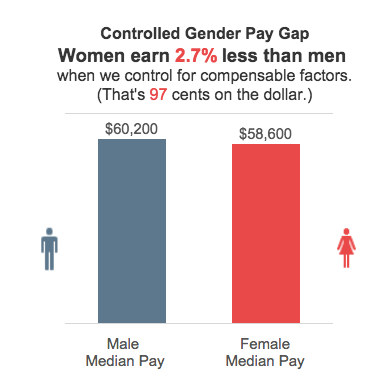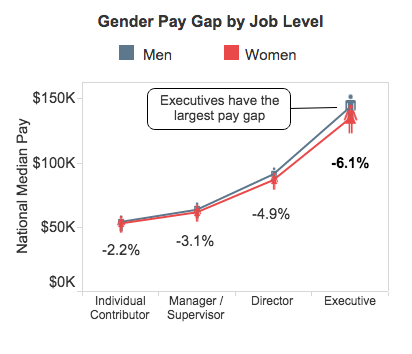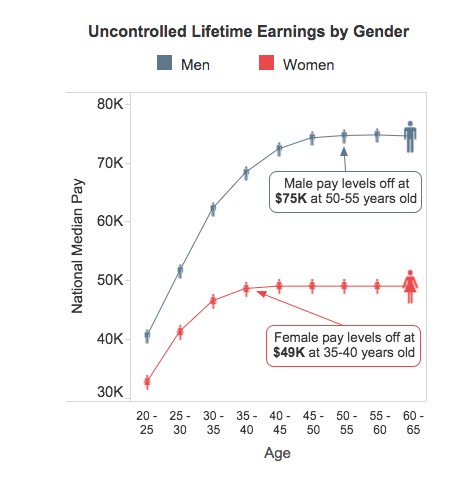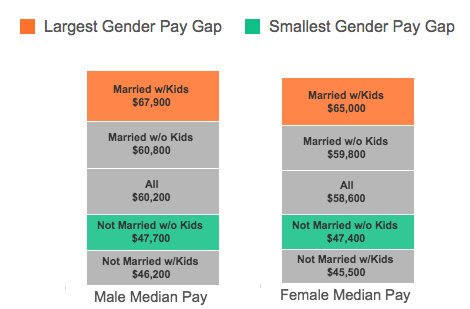That women earn 78 cents for every dollar made by a man is a much-cited statistic, but the gender pay gap is far more complicated than the number suggests. In a new report, salary consultant PayScale takes a deep dive into the nuances of that disparity and the factors driving it.
Women do indeed earn less than men on average, but there are reasons for this persistent difference. A big part of the story is that men and women tend to do different kinds of work. Jobs themselves seem to have a gender component. Jobs that involve helping and caring are typically female (though many men work in them) and lower paid, while men’s jobs (with many women working in them) involve controlling and managing and are higher paid. When researchers control for the type of work people do, much of the gender-based pay differential disappears.
Related: The 25 Most Dangerous Jobs
Even so, whatever the reasons, pay differences are real and significant over a lifetime. Here are five key takeaways from that report:
1. The pay gap is far smaller when controlling for factors like industry and qualifications.

Women earn just 2.7 percent less than men, when compared to men in similar jobs with similar backgrounds.
2. Women tend to work in fields that pay less.

Office admin jobs, one of most popular fields for women, pay less than half the salary of computer software engineers, a popular field for male workers.
3. The gap grows as workers get promoted.

When comparing similar workers, women at the bottom of the corporate ladder earn just 2.2 percent less than men, but that gap nearly triples at the executive level.
4. Women’s salaries level off earlier

Men continue to earn salary increases until their early 50s, while women stop getting raises about 15 years earlier.
5. Family matters.

After controlling for worker industry and qualifications, one’s marital and parental status are the biggest factors impacting pay. Women who say that they prioritize their family over work have a larger pay gap, even when compared to men who report prioritizing their family at the same level.





